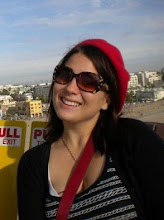1. I would love to be able to embrace a Tao-ist perspective and say “I live day to day and enjoy my life in the present rather than dreaming of the future”, but that would be an outright lie. I love playing the “imagine my life 10 years in the future” game! (For all my ladies out there who played M.A.S.H. all throughout elementary school, you know what I’m talking about, right?) In my imaginary future I am 28 years old, married, perhaps with a family on the horizon, preferably two kids, a boy and a girl, a puppy in the backyard. In my ideal world I would already be a published author with a bestselling series of novels on the shelves of Barnes and Noble’s, so that I can live comfortably on an elementary school teacher salary, and run a Bed and Breakfast during the summer time for travelers to the Washington/Oregon area. My bed and breakfast would emphasize fresh veggies from my garden, eggs in the morning from the hens in coop in the backyard, in season fruits from local growers in the daily meals for the guests. My efforts at sustainability in running my B&B would be written up in countless newspapers and Sunset magazine. Whoa…I got a little bit carried away with this imagining exercise, but this is the ideal of ideals of my future, obviously this is subject to change. After I read Jim Merkel’s Radical Simplicity, I reconsidered my view of my 28 year old self. At second glance my 10 year plan seems very shallow and focused on material possessions as in a large mansion to house my family and bed and breakfast and along with that a LOT of money. When I get down to the basics of what I want, no need, in my life ten years down the road all I need is happiness and love, as cheesy as that sounds. I don’t need a best-selling novel or a disposable income to be happy. What Radical Simplicity made me realize is that you can achieve a fulfilling life with only minimal possessions when you appreciate the earth and the people around you. Merkel references in the chapter about Your Money or Your Life the idea of getting off the treadmill of this capitalistic society before you are past the point of no return and all you value is material. I am getting off this treadmill before my material possessions come to define my life. Radical Simplicity has made me refocus my life goals into a less materialistic realm; I want to incorporate sustainable practices, recognition of the immaterial happiness of life and appreciation of nature into my lifestyle no matter where my future will lead me.
2. When I first picked up Jim Merkel’s book, I’m not going to lie, I was a little bit worried. First of all, I hate feeling guilty, and I knew that with all this talk of sustainability I was inevitably going to feel some (more like a lot of) guilt over my unsustainable lifestyle. Secondly, the term radical always sounds intimidating. When I first purchased the book, I flipped it open to get a sense of what Radical Simplicity is all about, and what page do I casually flip to? None other than the chapter on communing with nature through nature walks and vision quests. I’m down with composting and recycling and saving woodland creatures and all that jazz, but vision quests? Fasting to the point where you hallucinate? Sweat lodges? (Didn’t part of a cult just die in a sweat lodge?) Not really my style. I couldn’t help but think, “Don’t drink the Kool-aid, Katie!” All this sounded cultish and all too radical to me. Was this book going to be just the preaching of what I like to call “The Cult of REI”? I don’t have anything against REI, I know some fantastic people that are members of “The Cult of REI” but every time I go into that store, I feel like I’m intruding on a secret meeting of backpackers, climbers, hikers all donning their expensive eco-friendly gear, and I am an infidel, wearing my cheap Philippine made shirt. It is probably just my extremely guilty conscience kicking in that I have such a reaction to REI-ers and Jim Merkel alike. Needless to say, my first impression of Merkel’s Radical Simplicity was not so good, but thankfully my first impression was, as usual, completely off base. After reading the entirety of Radical Simplicity, I realized Merkel wasn’t a member of some wacky cult; he was just an average guy who took charge of his guilty conscience and drastically altered his lifestyle. And by drastically, I mean DRASTICALLY. This was no half-assed sustainability project; Merkel's change was a radical life choice. The extent to which he reduced his ecological footprint is extreme, first to 3 acres and then 2 acres, is in all meanings of the word radical. But does he go too far? I would say no. Sure his changes are extreme, but he was still able to lead a happy, healthy life. For me to change my lifestyle that drastically at this point in my life, I would personally not be happy, and it would be too extreme. But Merkel does not preach an exact replica of his path to radical simplicity for everyone; it can be altered to the extent to which you are willing to change. The three Wiseacre scenarios provide alternative visions of a sustainable lifestyle that are not quite as radical as Merkel and thus disproved my initial expectation of a preachy environmental extremist cult member.

